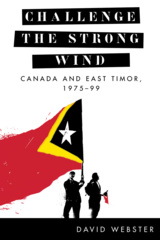
Since 9/11 and the onset of the “war on terror,” the principal challenge confronting liberal democracies has been to balance freedom with security and individual with collective rights.
In Defence of Principles sheds new light on the evolution of human rights norms in liberal democracies by charting the activism of four NGOs – the Canadian Council of Churches, Canadian Jewish Congress, Canadian Civil Liberties Association, and Amnesty International Canada – on issues of refugee rights, hate speech, and the death penalty. This activism often includes the use of difficult, often controversial legal cases on as platforms to assert human rights principles and shape judicial policy-making.
Although human rights principles are often spoken of in absolute terms, this book reminds us that they are never certain – even in countries that have a vibrant civil society, a long tradition of rule of law, and a judiciary that possesses the constitutional authority to engage in judicial review. The struggles of these NGOs reveal not only the fragility but also the resilience of ideas about rights in liberal democracies.
In Defence of Principles will appeal to students and practitioners of law, sociology, and Canadian politics, as well as anyone interested in the history of human rights in Canada.
In Defence of Principles is a comprehensive survey of three groundbreaking Charter cases and the NGOs that plunged into the heart of these controversies. Thompson’s book ultimately reminds readers of the fragility of NGOs’ gains in the field of human rights, as the experiences of AI Canada in Kindler and of the CCC in Singh both show. Thompson’s work also describes how NGO intervention is not without its costs. The CCLA and AI Canada, for instance, paid a substantial price in the form of adverse publicity and decreased donations, respectively, for being seen to side with odious individuals (whether a virulent racist or two violent criminals). In spite of these setbacks, the persistence of Singh, Keegstra, and Kindler in current debates on refugees, free expression, and capital punishment remains a legacy of the intervention and bold ideas of Canada’s NGOs.
This is a well-crafted, subtle, and highly relevant though specialized contribution to human rights and security. Summing up: Highly recommended.
This book is an important addition to the literature on the evolution of human rights norms, the sociology of law, and Canadian politics. It is a first-rate study that adds a political dimension to the legalistic and historically oriented accounts of these issues.
Preface
Introduction: In Defence of Principles
1 My Brother’s Keeper: The Canadian Council of Churches and the Rights of Refugees
2 The “Misuse” of Freedom? The Canadian Jewish Congress, the Canadian Civil Liberties Association, and the Limits of Expression
3 Shocking the Conscience? Amnesty International Canada and Abolition of the Death Penalty
Conclusion: Principles in the Age of Rights
Notes
Selected Bibliography
Index









